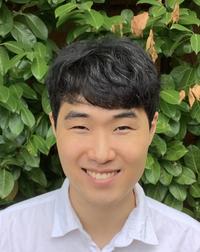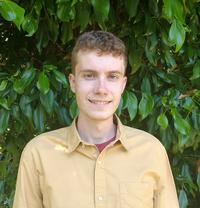June CDT Mathematics of Random Systems Workshop
June 2024 CDT Workshop – Friday 21st June 2024, 14.00 -17:00
14:00 Min Dai, Hong Kong Polytechnic University
Learning an Optimal Trading Strategy with Transaction Costs via a Randomized Dynkin Game
Abstract: We consider a dynamic investment problem faced by an investor who aims to maximize his expected log-return rate in the presence of transaction costs and unknown market environments. We show that this problem can be reformulated as an equivalent Dynkin game problem, where the observable bond-stock price ratio serves as the state variable. We introduce an exploratory variant of the Dynkin game by randomizing stopping times and incorporating an entropy-regularization term. We design a reinforcement learning algorithm for this exploratory Dynkin game. We provide theoretical analysis and numerical experiments to demonstrate that the learned strategy efficiently approximates the optimal strategy. Our reinforcement learning algorithm is applicable to general Dynkin game problems, even in non-Markovian settings. This work is jointly with Yuchao Dong.
Bio of the speaker: Min Dai is a Chair Professor in Applied Statistics and Financial Mathematics at the Department of Applied Mathematics and the School of Accounting and Finance, The Hong Kong Polytechnic University (PolyU). Prior to joining PolyU in 2021, he taught at the National University of Singapore and Peking University after receiving his PhD degree from Fudan University in 2000. His research focuses on financial derivative pricing, portfolio selection with market imperfections, corporate finance, and financial technology. He has published in peer-reviewed journals across different disciplines, such as the Journal of Econometrics, Journal of Economic Theory, Journal of Finance, Management Science, Mathematical Finance, Review of Financial Studies, and SIAM Journals. Currently, he is a Co-editor of Digital Finance and serves on the editorial boards of several academic journals, including Operations Research, Finance and Stochastics, Journal of Economic Dynamics and Control, SIAM Journal on Financial Mathematics, Mathematics and Financial Economics, and Frontiers of Mathematical Finance. He will be a plenary speaker at the 12th World Congress of the Bachelier Finance Society.
15:00 Tea and coffee break
15:30 Timothy Kang, Imperial College London

Algorithms for the Rao decomposition of a quasimartingale
Abstract: In this talk, we present algorithms which return the Rao decomposition of a quasimartingale. A quasimartingale is an adapted, cadlag stochastic process which can be expressed as the difference of two positive supermartingales. For any quasimartingale, there is a unique choice of minimal such positive supermartingales and their difference is the so-called Rao decomposition of the quasimartingale.
We begin by presenting three closely related but scarcely known algorithms, two of which were introduced by Ascoli in 1934 and 1935, whilst the other was introduced (independently of Ascoli) by Zalgaller in 2000. We then present two algorithms to obtain the Rao decomposition of a quasimartingale. One of these algorithms is based on Ascoli's two algorithms, whilst the other is based of Zalgaller's.
We outline a proof that our algorithms do obtain the Rao decomposition of a given quasimartingale and that these algorithms are, in some sense, equivalent. We finish by applying our algorithms to some key examples (of quasimartingales) and briefly discuss some possible future directions."
16:10 Jacob Mercer, University of Oxford

Brownian bees and a reflected Brownian motion scaling limit
Abstract: We will introduce the so-called `N-Brownian bees' particle system, which has been well studied by Berestycki et al. When each particle is given a constant drift, there appears a critical value for drift, giving three regimes. The main focus of this talk will be on the critical regime, in which the system, under the appropriate scaling, behaves like a single reflected Brownian motion. We will build up the machinery to give a sketch proof of this result.
16:50 End of workshop



